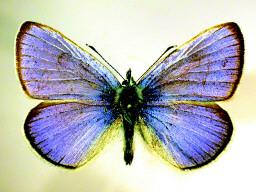Two researchers from the biology department at the University of Pisa recently published the essay ''Beyond Competition: Incorporating Positive Interactions between Species to predict Ecosystem Invasibility''.
The study was published in collaboration with a colleague from the University of North Carolina.
Fabio Bulleri and Lisandro Benedetti-Cecchi's essay was published in the Public Library of Science Biology, the reference journal for biology, according to a citation of the Institute for Scientific Information index (the most important for the international scientific community).
The essay deals with the mechanisms that regulate the settlement and diffusion of exotic species, in the light of global commerce and the transport and introduction of plants and animals in new regions and bodies of water.
Even if the majority of these species, commonly defined as 'exotic', has a minimal impact on their native ecosystems, some can bring to the extinction of autochthonous species or compromise the functioning of ecosystems, with enormous financial losses.
The majority of the theories developed with the goal of previewing how the characteristics of the native population and environmental conditions can determine the resistance to the postulate invasion that the native species have no or a negative effect on the exotic species.
Contrarily, there are some examples in nature, both in marine and land life, that demonstrate how components of the native population can facilitate the settling and dispersion of the introduced species.
According to the current models, an increased biodiversity of native populations increases their ability to take advantage, completely utilizing the resources, to the detriment of the introduced species.
Therefore it is understood that biodiversity of ecosystems can constitute a barrier against invasion.
The conceptual model developed by Bulleri, Benedetti Cecchi and Bruno, integrates the positive interaction between species (often defined as facilitation) in models that seek to forecast the degree of ''invasibility'' of a system on the basis of the availability of resources necessary for survival.










